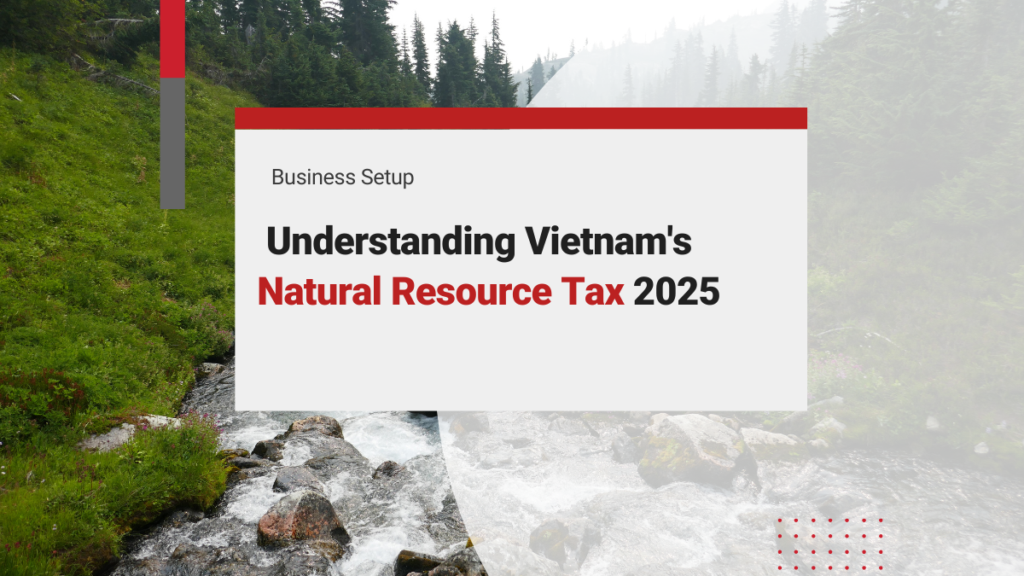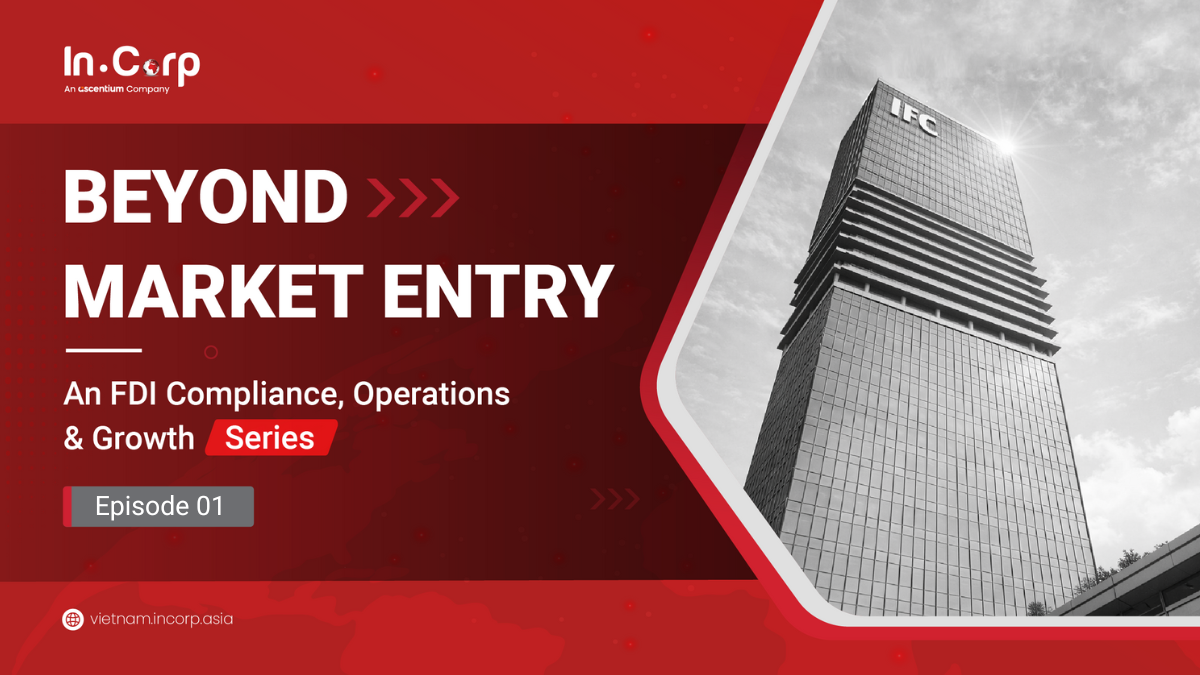Vietnam’s natural resource tax 2025 introduces new tax rates and compliance rules for businesses extracting minerals, petroleum, and other natural resources. This article outlines what these changes mean for your business and how to comply.
Taxpayer Obligations for Natural Resource Tax
Industries that exploit Vietnam’s abundant natural resources, including petroleum and minerals, are subject to the natural resource tax (NRT). This tax applies to companies using or developing these resources, making them liable for the NRT. The taxable value for these natural resources can be calculated using various methods, especially when the commercial value is not easily ascertainable.
For instance, companies extracting minerals are taxed based on their production output at a predetermined value per unit, directly linking the tax payable to the quantity of resources extracted.
Businesses must diligently calculate taxes, understand rates, accurately determine taxable value, and ensure timely payment to remain compliant and avoid penalties.
Being informed about these obligations helps businesses plan operations effectively and maintain good standing with tax authorities.
Bookkeeping and Compliance Requirements
Entities involved in mineral extraction must adhere to specific bookkeeping guidelines outlined in Decree 11/VBHN-BTNMT to ensure accurate natural resource tax declarations. These requirements are designed to capture detailed information about the extraction process, including recording raw mineral volumes, waste, and acceptance minutes for various mining stages. Accurate bookkeeping forms the basis for calculating the natural resource tax and ensuring legal compliance.
In addition to technical documentation, financial documents play a vital role in compliance. This includes invoices for raw materials, sales, and contracts related to mineral transactions, which must be meticulously maintained and regularly updated to reflect actual output and transactions. Filing deadlines for the natural resource tax are stipulated in relevant legislation, requiring timely submissions to avoid penalties. Entities must utilize forms specified in Decree 11/VBHN-BTNMT to declare their actual output for the tax.
Adhering to these requirements ensures correct tax payments and maintains transparency and accountability, enhancing reputation and building trust with regulatory authorities.
Read More: Benefits of Outsourcing Bookkeeping In Vietnam: Importance, Common Mistakes and Best Practices
Natural Resource Tax Rates in 2025
The natural resource tax rates in Vietnam for 2025 vary significantly, ranging from 1% to 40%, depending on the type of resource extracted. For certain natural resources like water used for agriculture and fisheries, exemptions may apply under specific conditions. Knowledge of these tax rates is essential for compliance and effective business planning in Vietnam, as they reflect the value of the resources extracted.
The variability in tax rates highlights the need to be informed about specific rates for different resources, allowing businesses to plan operations and financial strategies effectively while optimizing tax liabilities.
Next, we’ll delve into the specific tax rates for rare earth minerals, timber and forest products, and natural gas, coal, and crude oil.
Read More: An Essential Guide of Taxation & Compliance Deadlines in Vietnam
Rare Earth Minerals
Vietnam imposes an 18% natural resource tax rate specifically on rare earth minerals, highlighting their global significance. This natural resource tax rate reflects Vietnam’s strategic importance in the global market, as the country possesses the third-highest reserves of rare earths in the world.
The high natural resource tax underscores the value of these minerals and the government’s intent to manage their extraction carefully.
Timber and Forest Products
Timber is categorized into various groups based on ecological significance and demand, with Group I representing the highest value timber. For timber categorized as Group I, a natural resource tax rate of 35% is applied in Vietnam. This high tax rate underscores the emphasis on sustainable forestry practices and the preservation of valuable forest resources. The tax rates for timber reflect its sustainability and demand in the market, influencing the overall management of forest resources.
The high tax rates for Group I timber serve as a deterrent against over-exploitation and encourage sustainable practices within the forestry sector. By understanding these tax rates, businesses involved in the timber and forest products industry can align their operations with environmental conservation goals and ensure they remain compliant with regulatory requirements.
Natural Gas, Coal, and Crude Oil
Crude oil production in Vietnam is subject to specific natural resource tax regulations, with a tax rate of 10% for operations extracting up to 20,000 barrels per day. This tiered approach to taxing energy resources ensures that smaller producers are not overly burdened while still contributing to national revenue. Compliance with this 10% tax rate is crucial for crude oil producers to avoid penalties and maintain favorable regulatory standing.
This tax rate for crude oil production reflects the government’s strategy to balance revenue generation and support the energy sector’s growth, encouraging companies to align operations with national economic goals.
Read More: Navigating Vietnam’s Tax Landscape: Expert Accounting Outsourcing Strategies
Environmental Protection and Green Taxes
Vietnam has enacted a series of green taxes to promote environmental conservation, focusing on reducing pollution and encouraging sustainable practices. The taxes encompass levies on energy and transport. They also cover pollution and resources. Green incentives are available for projects that reduce environmental impact, including financial benefits and tax reductions. These measures are vital for promoting sustainable practices and environmental protection in Vietnam.
Green taxes and incentives reflect the government’s commitment to environmental protection, helping businesses align operations with national goals and potentially benefit from adopting sustainable practices.
Carbon Emission Quotas
Vietnam is establishing a domestic carbon market aimed at managing greenhouse gas emissions effectively. The Vietnamese government is developing a market for carbon trading to regulate greenhouse gas emissions from industries. The Emissions Trading System (ETS) is set to launch in June 2025, targeting major greenhouse gas emitters. Approximately 150 significant emitting companies in sectors like iron and steel will receive free carbon emission quotas during the pilot phase.
This carbon trading plan and the cap on carbon emissions, known as the carbon emission quota, are designed to promote sustainable practices and reduce overall emissions. Participation in the ETS enables businesses to comply with environmental regulations while contributing to global efforts to combat climate change.
Environment Protection Tax (EPT)
The Environmental Protection Tax (EPT) in Vietnam applies to goods that harm the environment, with rates varying significantly based on the product type. For instance, plastic bags are taxed at VND 50,000 per kilogram, while restricted-use chemicals are taxed at VND 500 per kilogram. These rates aim to deter the use of harmful goods and promote sustainable consumption.
The EPT is a crucial component of Vietnam’s strategy to reduce environmental impact and encourage the use of eco-friendly alternatives. Understanding EPT rates helps businesses make informed decisions about product offerings and contribute to environmental protection.
Foreign Investment in Resource Extraction
Foreign investment in resource extraction is permitted if it doesn’t fall under prohibited categories per local laws. Investors must comply with the Prohibition List and the Foreign Investor Market Access List. Vietnam’s trade agreements protect foreign investors, though some sectors require ministerial approval.
Foreign firms may face challenges such as:
- Environmental impact reports
- Site clearance
- Local approvals
- Taxes
Despite these challenges, Vietnam offers equal market access conditions for foreign and domestic investors unless restricted by international agreements.
Successfully navigating these regulations allows foreign investors to tap into Vietnam’s rich natural resources and contribute to economic growth.
Corporate Income Tax Incentives for Resource Development
In Vietnam, the general corporate income tax rate is 20%, but companies meeting specific conditions may benefit from a reduced rate as low as 10%. These reduced rates are available for companies investing in encouraged sectors like resource development. Additionally, tax holidays can offer complete exemptions from corporate income tax for a specified period after profits are first generated.
Enterprises involved in research and development may establish a tax-deductible R&D fund, allocating up to 10% of annual profits. These corporate income tax incentives are designed to encourage investment in resource development and innovation, supporting the growth of key industries in Vietnam.
Read More: Corporate Income Tax (CIT) in Vietnam: A Comprehensive Overview
Filing and Payment Procedures
Taxpayers must maintain accurate bookkeeping and comply with requirements outlined in Decree 11/VBHN-BTNMT, including detailed technical and financial records for mineral resource tax declaration. Filing deadlines for the natural resource tax must be strictly followed as stated in regulatory guidelines. Payments should be made through designated banking channels to ensure compliance with regulations.
Adhering to these filing and payment procedures ensures businesses meet tax obligations and avoid penalties. Accurate and timely submissions are crucial for maintaining good standing with tax authorities and ensuring smooth operations.
Read More: Top 10 Challenges of Doing Business in Vietnam: Notes and Advice for Foreign Investors
How InCorp Can Help?
InCorp can provide essential guidance and support to businesses navigating Vietnam’s complex natural resource tax landscape, ensuring you fully understand the tax rates applicable to various resources, including rare earth minerals, timber, and crude oil. We ensure your compliance with all bookkeeping and tax filing requirements, guaranteeing accurate tax declarations and minimizing the risk of penalties.
InCorp keeps you informed about the introduction of green taxes and incentives, enabling you to align your operations with Vietnam’s commitment to environmental protection and potentially benefit from financial incentives. We assist foreign investors in navigating local laws and international agreements, facilitating their access to Vietnam’s rich natural resources. By partnering with InCorp, you can stay informed and compliant with Vietnam’s natural resource tax regulations, ensuring successful and sustainable business operations within the country.

clients worldwide

professional staff

incorporated entities in 10 years

compliance transactions yearly






